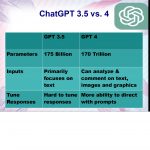
dark web drug dealing
Whatever someones unlawful intentions are, there’s likely a supplier on the dark web or “DarkNet” that can deliver for the right price. The dark web is around 400 to 550 times larger than the World Wide Web, that search engines like Google have indexed. We recently published an article about how the dark web is becoming a go to place for buying guns or perhaps worse plans for printing plastic guns (as in no metal detection) on 3D printers. Not surprising that another hot item for sale on the dark web are drugs in this specific case opiates. Researchers from Ohio State University have finished a study on first opioid buyers on the dark web and analyzed their buying habits.
Between the legal crackdown on opiate prescriptions and big-pharm price gouging has created a strong underground market. It seems for these new dark web buyers trust is the number one priority in choosing a seller, with widest selection or the best price being a lower priority.
“When opioid users are making that first purchase, price doesn’t matter at all,” said Scott Duxbury, lead author of the study and doctoral student in sociology at The Ohio State University.
“If they come back to buy again, price matters a little, but trust remains their primary concern.”
This makes sense as the dark web has a similar set up as ebay and Amazon in that sellers have reputation scores based on buyer feedback that measures trustworthiness. With the identities of both Cryptomarket buyer and seller carefully protected on the dark web, the trust mechanisms in place to rate sellers is the only thing buyers can rely on to keep someone from walking off with their money in a transaction, apparently.
The study published recently in the Journal of Quantitative Criminology also established that while most of this drug-dealing marketplace could be vulnerable to law enforcement clampdowns, the core group of returning buyers and sellers would be much more difficult to shut down. However, the system has an obvious vulnerability in that most buyers purchased only from one seller means that the overall network is not very resilient. So the authors suggest law enforcement should go online and damage the reputation of the sellers, which is easiest to do with new sellers before they can get established.
“If officials can find a way to flood a network with bad evaluations when it is first starting, that will make it difficult for buyers to make informed decisions. That could stop markets when they are just beginning,” Duxbury said.










